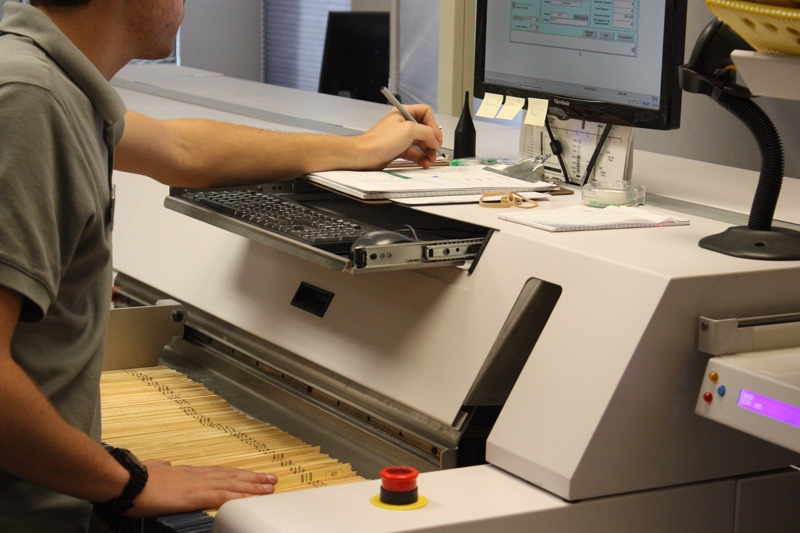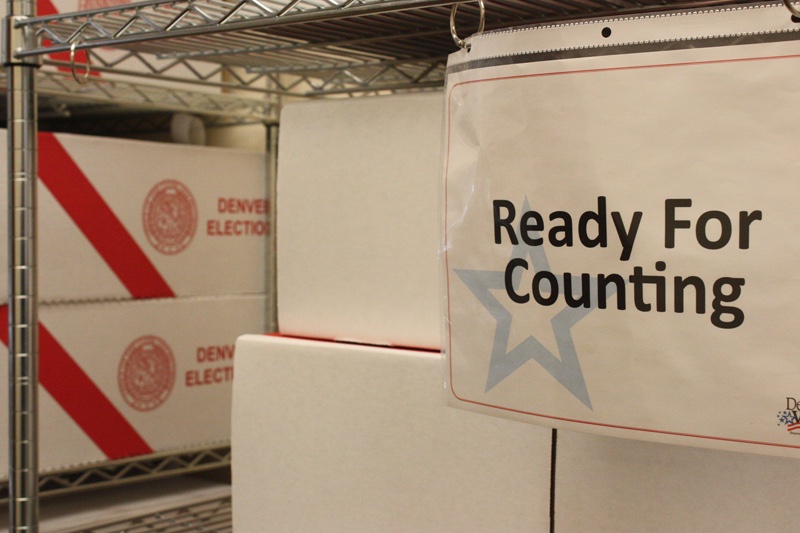
Father may know best, but that doesn’t necessarily mean he has the right to impose his will on wayward adult children. They’re entitled to make mistakes.
In this case, father is Secretary of State Wayne Williams, who apparently intends to impose a single voting machine system across Colorado. But a few county clerks, like recalcitrant offspring, are resisting. They claim other systems are more convenient and less expensive.
Law and tradition through the decades has made it possible for counties to choose their own election-machine contractors, so long as they win certification from the secretary of state. The counties, after all, have always been responsible for buying their own systems.
Williams, continuing an effort started by predecessor Scott Gessler, put together a review process for what turned out to be four different election-system vendors for the 2015 election. Two counties, one urban and one rural, were assigned to each contractor.
After 16 public meetings and the election, an advisory committee recommended the use of only one company, Dominion Voting Systems. It was founded in Toronto, but now happens to be headquartered in Denver.
The committee included Donetta Davidson, a respected former Arapahoe county clerk, Colorado secretary of state and federal voting official.
Dominion’s system worked better and was preferred by disabled voters, said Williams in an interview. It was also better able to handle last-minute candidates, like those who can get into recall races only 15 days before the election.
And if it was statewide, any county can use another county’s equipment in case of a breakdown.
A statewide system also saves money, he said, noting that Mesa County would pay $100,000 less if it bought from Dominion through the state contract instead of separately.
Just before Christmas, Williams said he would begin exclusive negotiations with Dominion.
Is this an unfunded mandate, the kind that states always object to when it is imposed by the federal government from on high? More like semi-unfunded. Williams is offering $850,000 in “free” federal money, from the Help America Vote Act, to participating counties. It’s supposed to cover 50 percent of their costs in training, testing and installing. The counties still have to pay for the equipment.
“There’s no requirement that anyone move to the new system” this year, Williams said. “If you want to continue your legacy system, you can.”
That claim is disingenuous, said Chris Pratt, assistant attorney for Douglas County. The legislature has imposed an auditing requirement this year that the counties’ old equipment — most of it 15 to 20 years old — cannot meet.
When they do buy new equipment, at least the software must be from Dominion, said Williams. Counties can buy off-the-shelf hardware like scanners from other companies.
Douglas and Jefferson counties are the two leading foes of the Dominion system. Jeffco prefers the system sold by Election Systems & Software of Omaha, Neb., and Douglas prefers Hart InterCivic of Austin, Tex.
As it happens, each county used its preferred system during the review process last year. They “fell in love” with what they got, according to Williams
Mike Beasley, lobbyist for the County Clerks and Recorders Association, hasn’t formally polled the clerks but he estimated about 70 percent of the state’s 64 counties are happy with Dominion.
This dispute isn’t partisan. Williams is Republican, and so are complaining officials in the counties.
Williams’ office did not solicit requests for proposals from the competing election companies, but under state law elected officials don’t have to.
Hart and ES&S have been federally certified but are still seeking certification by Williams’ office. They’ve been told there’s not enough time for that, according to Jason Hopfer, an ES&S lobbyist.

There are rumors, unconfirmed, that a contract Dominion won in another state ended up costing the state more than twice the original bid. Cost overruns are fairly standard in government contracts, but Williams maintains he has signed a memorandum of understanding that would lock Dominion in on their final offer.
The Jeffco commissioners testified in December that the single Dominion system would impose a “significant financial burden” on Jeffco and other counties. They said Dominion would cost more than twice the $525,978 that ES&S quoted.
Commissioner Libby Szabo said in an interview Williams’ mandate “has lawsuit written all over it” since Colorado statutes make it clear that multiple election systems are intended. “It’s always good to open it up to new entities,” she added. She did, however, back away from the comparable cost figures used in December since they haven’t been verified.
In addition to possible lawsuits there may be a bill or two introduced this session opening up the system.
Longtime Rocky Mountain News political columnist Peter Blake now writes once a week for CompleteColorado.com. Contact him at pblake0705@comcast.net You may re-publish his work at no charge and without further permission; please give full credit to Peter Blake and www.CompleteColorado.com.


